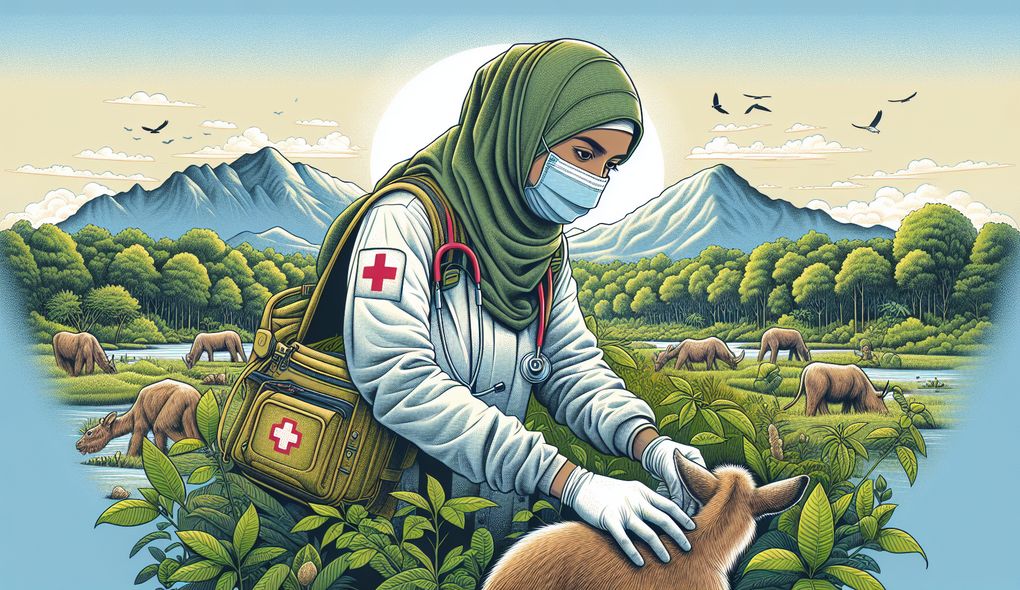Do you have Basic Life Support and Advanced Cardiac Life Support certifications?
JUNIOR LEVEL

Sample answer to the question:
Yes, I have both Basic Life Support (BLS) and Advanced Cardiac Life Support (ACLS) certifications. I obtained my BLS certification during medical school, where I learned essential life-saving techniques such as CPR and the use of automated external defibrillators (AED). As for ACLS, I completed the required training and passed the exam during my residency program in emergency medicine. ACLS certification equips me with the knowledge and skills needed to manage cardiac emergencies and perform advanced cardiac interventions.
Here is a more solid answer:
Yes, I have both Basic Life Support (BLS) and Advanced Cardiac Life Support (ACLS) certifications, which are essential for my role as a Wilderness Medicine Physician. My BLS certification was obtained during medical school, where I received hands-on training in performing CPR, using AEDs, and providing basic life-saving interventions. This certification laid a strong foundation for my clinical skills and emergency medicine knowledge. Additionally, I completed the required training and passed the ACLS exam during my residency program in emergency medicine. ACLS certification has equipped me with advanced cardiac interventions and the ability to manage critical cardiac emergencies. These certifications demonstrate my commitment to maintaining high standards of patient care and my preparedness to handle medical emergencies in remote and challenging wilderness environments.
Why is this a more solid answer?
The solid answer provides more details and emphasizes the importance of the certifications in the specific role of a Wilderness Medicine Physician. The candidate highlights their hands-on training and the impact of the certifications on their clinical skills and emergency medicine knowledge.
An example of a exceptional answer:
Yes, I possess both Basic Life Support (BLS) and Advanced Cardiac Life Support (ACLS) certifications, and they play a crucial role in my ability to excel as a Wilderness Medicine Physician. My BLS certification was obtained during medical school, where I underwent rigorous training that included simulated scenarios and real-life simulations. I learned how to perform high-quality CPR, use AEDs effectively, and manage respiratory and cardiac emergencies. This certification has been instrumental in building my foundation in clinical skills and emergency care. Obtaining ACLS certification during my residency program was an important step in advancing my knowledge and skills in the management of cardiac emergencies. Through intensive training, I gained expertise in interpreting cardiac rhythms, administering appropriate medications, and performing advanced interventions, including intubation and defibrillation. These certifications have prepared me to confidently handle critical situations in wilderness environments, where access to medical resources may be limited. By maintaining these certifications, I ensure that I am up to date with the latest guidelines and techniques in life support and cardiac care, enabling me to deliver the highest standard of care to my patients in challenging and remote settings.
Why is this an exceptional answer?
The exceptional answer goes above and beyond by showcasing the candidate's extensive training during medical school and residency, as well as their commitment to staying updated with the latest guidelines and techniques. They highlight how the certifications prepare them to handle critical situations in wilderness environments.
How to prepare for this question:
- Ensure that your BLS and ACLS certifications are up to date and valid.
- Review the basic life-saving techniques covered in BLS certification, such as CPR and AED use.
- Familiarize yourself with the latest ACLS guidelines and protocols, especially regarding cardiac emergencies.
- Consider taking additional wilderness medicine courses or attending workshops to enhance your knowledge and skills specific to remote and challenging environments.
- Practice scenarios and simulations to simulate the conditions you may encounter in wilderness settings.
What are interviewers evaluating with this question?
- Skills/Qualifications
Want content like this in your inbox? Sign Up for our Newsletter
Related Interview Questions
Tell me about a time when you had to prioritize your workload in a remote or wilderness environment.
How do you stay updated on the latest wilderness medicine protocols and outdoor survival techniques?

